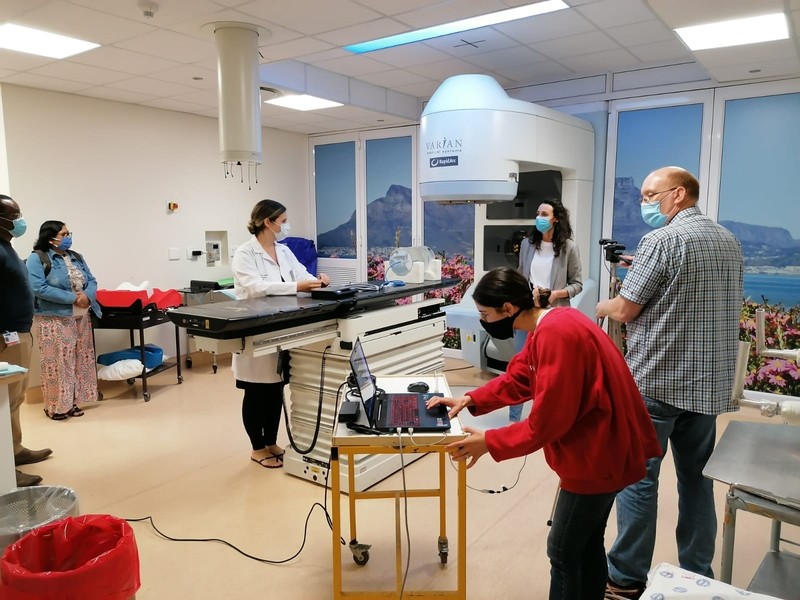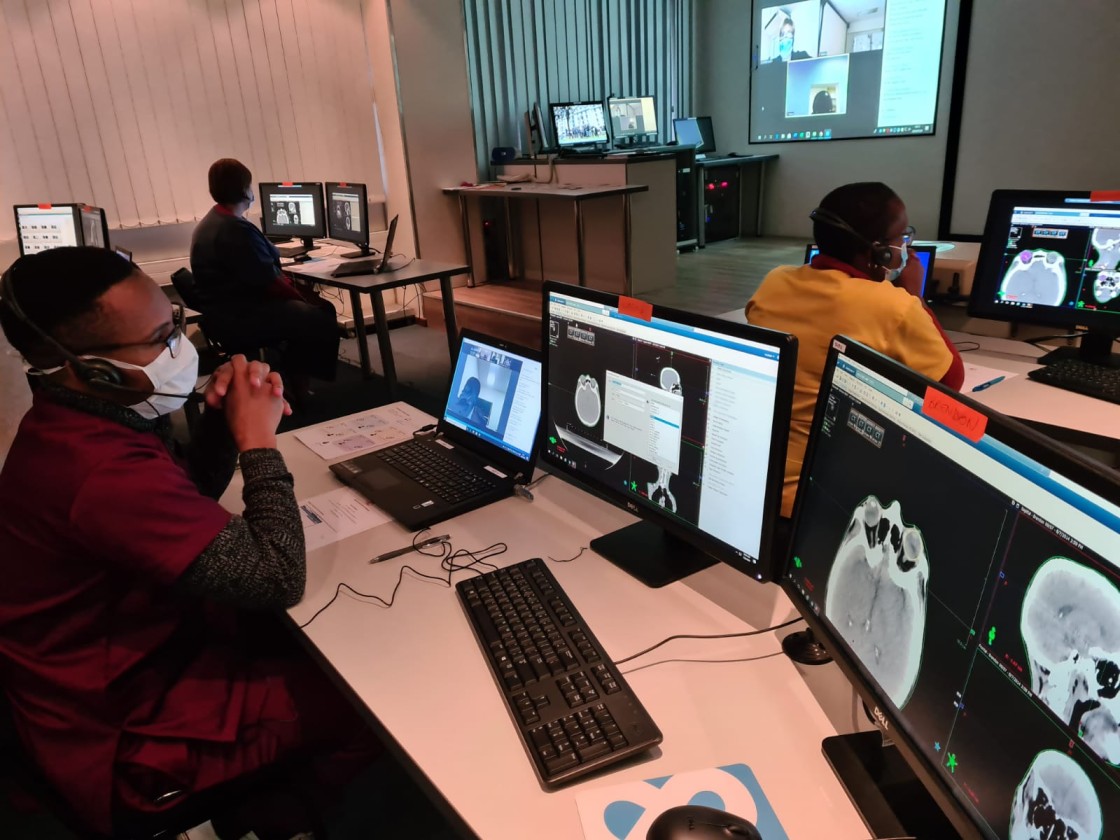Access to Care Cape Town goes virtual to keep practical radiotherapy teaching on track during the pandemic
13 December 2021 Read time 6 min.
With the world focusing on the 4.6 million COVID-19-related deaths recorded in 21 months, it is easy to forget about the estimated 19 million new cancer cases and 9.9 million cancer-related deaths recorded annually.
Radiotherapy (RT) uses ionizing radiation to target cancer cells in specific locations in the body, while attempting to spare normal tissue surrounding the cancer area. This requires sophisticated treatment machines as well as computerised RT treatment planning (RTP) systems to plan the delivery of the radiation accurately. About half of all cancer patients will require RT, but access to the machines is often limited. To address this, new machines are being installed worldwide, making training essential.

The Access to Care Cape Town (A2C) training program was launched in 2015 to address this need in Africa. It allowed teams of RT professionals to attend practical training in Cape Town to facilitate the transition to modern RT techniques. However, the complete travel ban to and from South Africa imposed in March 2020 prevented continuation of in-person training. The decision was taken to immediately convert the training platform to allow for remote teaching.
Prior to the pandemic, training was based on hybrid e-learning and in-classroom teaching. This included LäraNära online pre-course training, followed by 17 day in-person training.
Participants had access to a virtual reality radiotherapy simulation system (VERTTM), a radiotherapy treatment planning (RTP) laboratory (Varian EclipseTM) and demonstrations in the department.
With such a large part of the program relying on hands-on teaching and demonstrations, it was essential to find a way to go virtual.
Practical training requires real-time interaction with students while they learn RTP skills. Prior to COVID-19, students trained under direct supervision in the RTP laboratory. These computers make use of a cloud-based interface between local Dell Wyse Thin ClientTM workstations and the main server in Switzerland. To maintain this level of direct supervision, with students and facilitators now in different countries, the existing infrastructure was reconfigured. Remote participants can now access student vApp accounts through a web interface, while local faculty use VMWareTM admin logins to duplicate the student’s screen for monitoring. Communication with the students is facilitated through Zoom. The lecturer uses screensharing to demonstrate a particular contouring or planning skill to the group, after which breakout rooms are used to allow local classroom assistants to directly assist teams while they attempt to master the new planning skill on the RTP computers.
Live streaming sessions and pre-recorded video and simulation material further supplement practical training. The first course was offered in November 2020 with five more completed in 2021. This included the first fully remote 2D to 3DCRT course delivered in training blocks over a four month period, as well as a brand new three day Paediatrics for low- and middle- income countries course. More than 70 national and international participants were able to join Access to Care remote training sessions in 2021.
 This work is licensed under a Creative Commons Attribution-NoDerivatives 4.0 International License.
This work is licensed under a Creative Commons Attribution-NoDerivatives 4.0 International License.
Please view the republishing articles page for more information.










